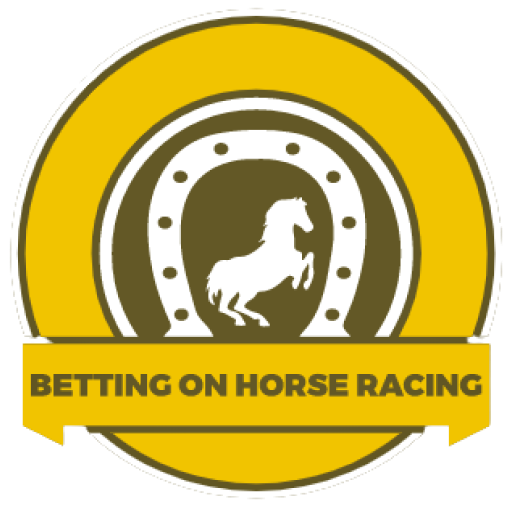Horse betting and online poker are two widely popular forms of gambling, each appealing to different types of gamblers. While horse betting has a long history tied to the thrill of the racetrack, online poker has surged in popularity due to its strategic depth and accessibility through digital platforms. For gamblers, understanding the odds associated with each type of betting is crucial for making informed decisions.
Horse betting offers the thrill of unpredictability, while online poker rewards strategic thinking. For people interested in analyzing different gambling methods, the best online casinos in Canada provide a rich resource. These platforms allow you to study odds, payouts, and strategies across various games, offering a comprehensive understanding of the gambling landscape.
Odds in Horse Betting: Key Elements
In horse betting, odds represent the likelihood of a horse winning a race and determine how much a bettor can win. The most common types of odds include fractional, decimal, and moneyline.
- Fractional Odds (e.g., 3/1): These odds are expressed as a fraction, where the numerator (3) indicates the potential profit, and the denominator (1) represents the amount wagered. A successful $1 bet at 3/1 odds would yield a $3 profit.
- Decimal Odds (e.g., 4.00): Decimal odds represent the total payout, including the original stake. For example, a $10 bet at 4.00 odds would return $40 ($10 x 4.00).
- Money Line Odds (e.g., +250): Common in North America, these odds indicate how much profit can be made on a $100 bet. A +250 money line means a $100 bet would yield a $250 profit.

Factors Influencing Horse Racing Odds
Several factors influence the odds in horse racing, making it a dynamic and often unpredictable form of gambling:
- Horse Form: A horse’s past performance in previous races is a significant indicator of its chances in upcoming events. Bettors often study form guides to assess a horse’s condition.
- Track Conditions: Weather and track surface conditions can significantly affect a horse’s performance. Certain horses may perform better on specific tracks (e.g., turf vs. dirt).
- Jockey Experience: The jockey’s skill and experience can influence a race’s outcome. Experienced jockeys often have better race strategies and a deeper understanding of their horse’s capabilities.
Common Bet Types and Their Odds
Horse betting offers a variety of wager types, each with different odds and potential payouts:
- Win Bet: The simplest and most popular bet, a bettor wagers on a specific horse to win the race. Odds are generally straightforward, reflecting the horse’s perceived chance of winning.
- Place Bet: In this bet, the bettor wagers on a horse to finish first or second. The odds are lower than a winning bet, but the chances of winning are higher.
- Exacta (or Exactor): This bet involves predicting the first two horses in the correct order. While the odds are higher, the difficulty of correctly predicting the order makes it riskier.
- Trifecta (or Triactor): This bet requires picking the first three horses in the correct order. The odds can be substantial, but the risk is equally high.
Odds in Online Poker: Core Points
In online poker, odds are central to decision-making and strategy. Unlike horse betting, where external factors largely influence odds, poker odds are determined by the mathematical likelihood of completing a hand or winning a pot.

- Pot Odds: Pot odds compare the current size of the pot to the cost of a contemplated call. For instance, if the pot is $100 and a player must call $20 to stay in the hand, the pot odds are 5:1.
- Hand Odds: Hand odds reflect the probability of completing a specific hand. For example, the odds of hitting a flush with one card to come in Texas Hold ’em are approximately 4.22:1.
Factors Affecting Poker Odds
Poker odds are affected by several factors, many of which are within the player’s control:
- Number of Players: The odds of winning a hand decrease as the number of players increases, making it more challenging to secure a win in large games.
- Game Type: Different poker variants (e.g., Texas Hold’em, Omaha) have different odds structures. For example, Omaha tends to have more action and draws, which can affect pot odds and hand odds.
- Player Skill: Unlike horse betting, where luck plays a significant role, poker is a skill-based game. Experienced players can manipulate odds in their favour through bluffing, reading opponents, and betting patterns.
Popular Poker Games and Their Odds
Different poker games come with varying odds, influenced by the rules and structure of each variant:
- Texas Hold’em: The most popular poker variant, Texas Hold’em has well-established odds for various hands. For example, the odds of being dealt a pair of aces (the best starting hand) are 220:1.
- Omaha: Known for its action-packed gameplay, Omaha has more complex odds due to the four-hole card structure. The increased number of possible hands changes the odds significantly compared to Texas Hold’em.
Comparing the Risk and Reward
Risk Factors in Horse Betting vs. Online Poker
Horse betting and online poker involve different types of risk:
- Horse Betting: The primary risk in horse betting comes from the unpredictability of race outcomes, influenced by numerous external factors such as weather, track conditions, and horse health. The risk is compounded by the fact that even the best research cannot guarantee a win.
- Online Poker: In poker, the risk is more controllable due to the influence of skill. However, the risk increases with the level of competition. Bluffing and strategic play can mitigate some risks, but bad beats and variance can still lead to losses.
Potential Rewards in Horse Betting vs. Poker
The potential rewards in horse betting can be substantial, especially with exotic bets like trifectas and exactas, which offer high payouts for correctly predicting outcomes. However, these rewards come with high risk.
In contrast, poker rewards are more consistent and can be substantial for skilled players. Winning in poker often requires patience, discipline, and a deep understanding of the odds, which can lead to long-term profitability.
Variance and Its Impact
Variance plays a crucial role in both forms of gambling:
- Horse Betting: High variance is typical in horse betting, particularly with long-shot bets. While these bets offer the potential for large payouts, the likelihood of winning is low.
- Poker: Variance in poker can lead to short-term losses even for skilled players. However, over the long term, skill can reduce the impact of variance, making poker a more consistent gambling option.
Skill vs. Luck: Impact on Odds
Role of Skill in Online Poker
In poker, skill significantly impacts a player’s odds of winning. Experienced players can leverage bluffing, position play, and reading opponents to improve their chances. Over time, skill can outweigh luck, making poker a game where informed decisions lead to better odds.
Influence of Luck in Horse Betting
Horse betting is more heavily influenced by luck. While research and knowledge can improve betting decisions, external factors beyond the bettor’s control play a significant role in race outcomes. The odds in horse betting reflect this unpredictability, with even the best-prepared bettors experiencing losses due to unforeseen events.
Balancing Skill and Luck
Consider two gamblers: one focuses on horse betting, using extensive research to select bets, while the other plays online poker, employing advanced strategies. Over time, the poker player’s results may be more consistent due to the skill component, while the horse bettor might experience more volatile results, reflecting the higher influence of luck.
Which Is the Better Bet: Horse Racing or Online Poker?
When compared, horse betting and online poker offer distinct advantages and challenges. With its reliance on external factors, horse betting presents higher risks but can result in substantial payouts. Online poker, on the other hand, rewards skill and strategy, offering more consistent outcomes for those who master the game.
Ultimately, horse betting and poker depend on the gambler’s preference for skill versus luck. Those who enjoy strategy and long-term gains may find poker more appealing, while those seeking the excitement of unpredictable outcomes may prefer horse betting.
